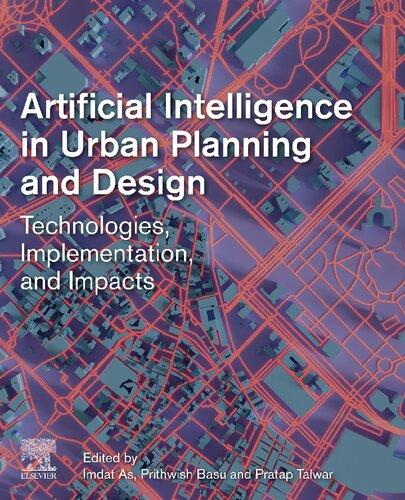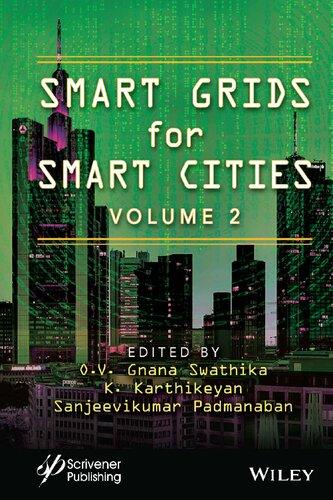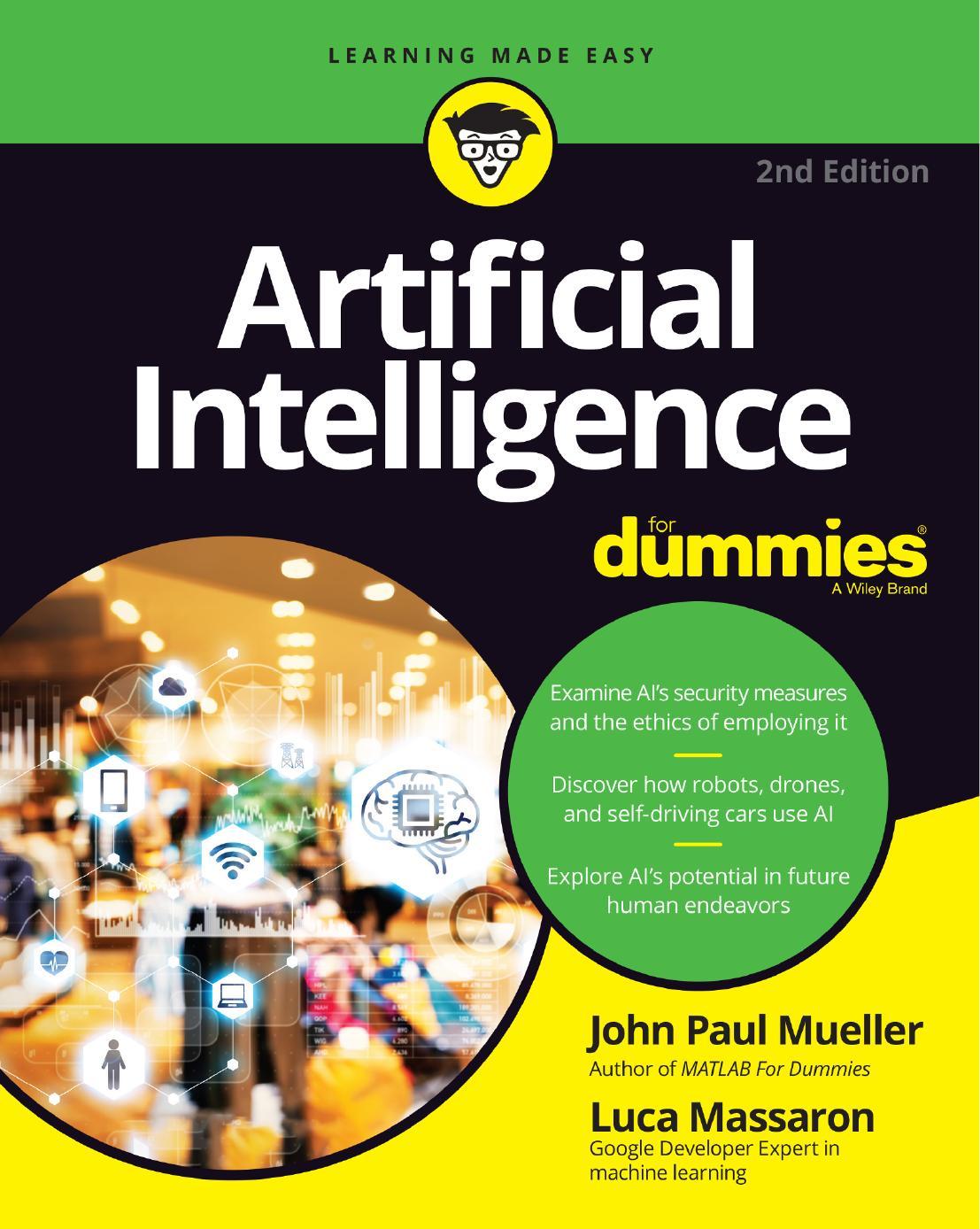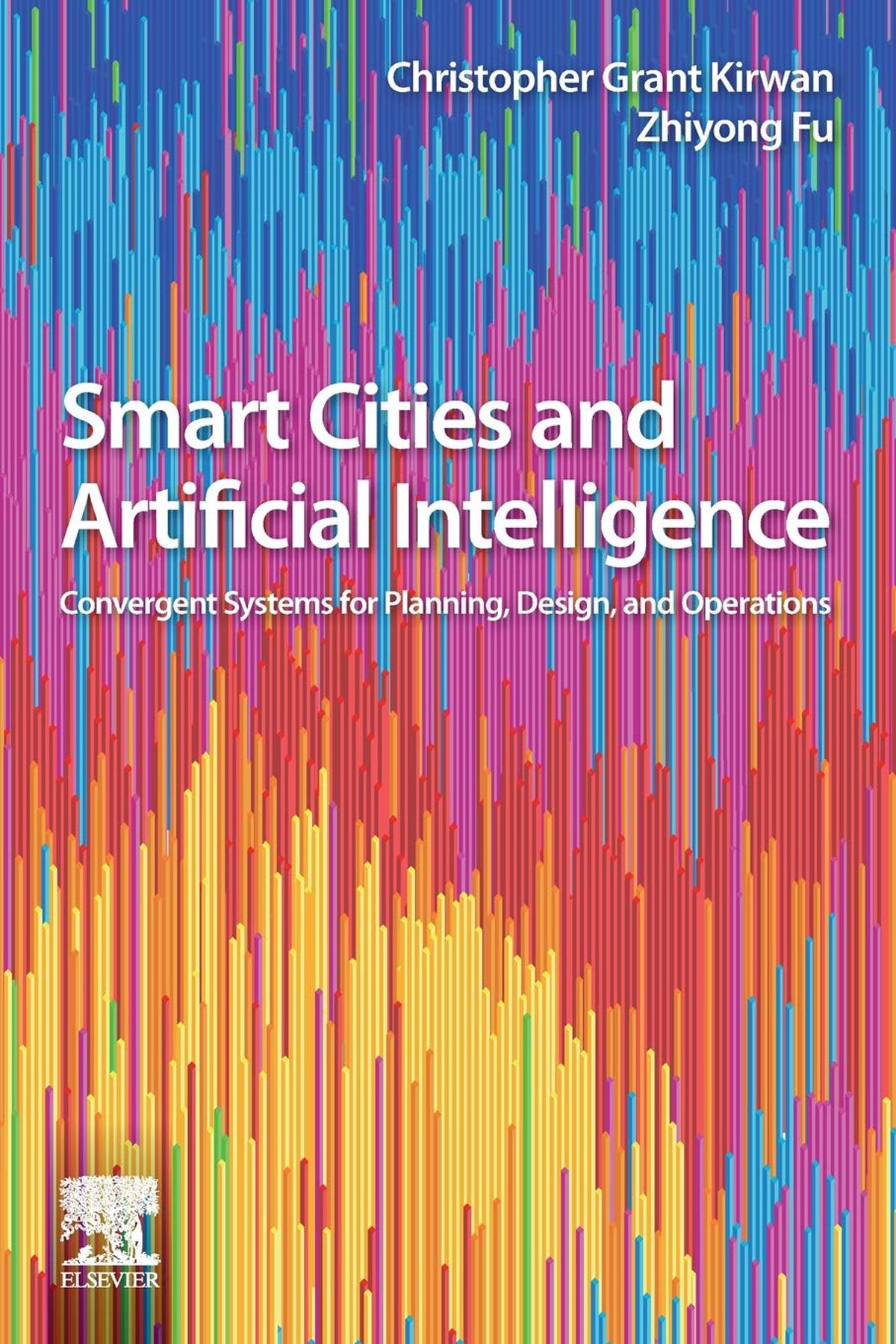Introduction
UntilveryrecentlytheworldsofDigitalandBrick-and-Mortarhaveremained dividedalongthelinesoftheoldandneweconomies.Oldeconomieswere basedonresourcedevelopment,industrialprocessesandhumanlabor.New economiesoperateonahigherlevelofabstraction,leveragingcomputing powerandventurecapital,suchaswithSiliconValleytechstartupsand IPOs.Thisseparationhasinfluencedthebusinesslandscapeofhowrealestate development,infrastructureandcitieshaveevolved.Inthephysicalworld,real estateislimitedtopropertymarketvalue.Itisvaluedwithrespecttoavailable landandpricescanberelativizedonapersquaremeterbasis.Thedigital economyhasnosuchspatialconstraintsandisscalable.Assuch,pricesand profitscanbeunmooredfromaphysicalbase.
Todaywearefinallyseeingthesetwodifferentworldsconverging the abstractwiththeconcrete butnotwithoutamassivereconceptualizationof howweplan,design,andimplementsmartcities.Definingandbuildingsmart citiesaimedattheconvergenceofthevirtualandtherealwillensureharmonious,sustainablesolutionswillbedeveloped,allowingforadaptationand changeastechnology,humans,andthephysicalenvironmentevolveandare impacteddifferently.Thisbookprovidesacomprehensiveapproachtothe planning,design,andoperationsofsmartcitiesandthesignificantrolesArtificialIntelligence(AI)playsinthe convergence ofcities,technology,and nature.
Atthisparticularmomentintime,perhapsoneoftheseveralmajorparadigmshiftsinhumanprogress,wehaveamomenttopausebeforeplunging headlongintothenewrealitythatisatourthreshold:arealityledbynewtechnologiesthatarealreadybeginningtotransformeveryaspectofourcontemporarylifeasweunderstandandexperienceit.Thisnewreality,ifmanaged ethicallythroughprivate public peoplepartnerships,guidingtheconvergenceoftechnologywithnaturalandsocialsystemstoformself-regulating governanceplatforms,willpotentiallybethesolutiontowhathumanityhas constructedasourcurrentdemise,theoverpopulationofcities,socioeconomic inequalityandinjustice,exploitationofournaturalresourcesandthedestructionofearth’secosystems.Ascitiesnowmakeupmorethan50%oftheconcentrationoftheworld’spopulationandareabsorbinganincreasingshareof people,citiesarepresentlythemostimportantpointofleveragetofocusonas itrelatestotheoptimizationoftheearthresourcesthroughtheapplicationof
technologiestoimproveefficienciesforamoresustainableplanet.Smartcities,therefore,arethekeytobringingthisalltogether.
Inancienttimes,humansweremoreconnectedtothenaturalworldwith directrelationalawarenessofuniversalbiorhythms.Aswehaveevolved withtheuseoftechnology,wehavemovedawayfromthisdirectconnection withnatureandhavelostthecapabilityofsensingnatureinstinctually.Inthe processofthemassmigrationandoverpopulationofurbancenters,humans haveexacerbatedtheinterrelationshipwithnatureandcompromisedearth’s balance.Theconceptsputforthinthisbook,rootedinthetheoryofconvergence,attempttoexplainhownewtechnologiesenabledbyAI,inthepresent andfuturestagesofhumandevelopment,canpotentiallybringuscloserto nature,assistinghumanstounderstandandvisualizethebiorhythmsandcorrespondingpatternsofnatureandourfootprintandimpactontheecosystem. Inthisnewstageofdevelopment,AIwillenableustoachievea collective intelligence thathasthepotentialtocreateacriticallyneededinterface betweenhumansandthenaturalworld.Thisinterfacewillbeformedover thenextfiftyyearsthroughanewhyper-acceleratedstageoftechnologyand theconvergenceofhumanandmachinethatwillsignificantlyimpactourrelationshipwiththeplanetandthenaturalworld(see Fig.1).
Wenowhavetheopportunitytoreversetheanthropogenicdamagesdone toplanetearthanditsbiosphereandtomaintain“homeostasis,”whichNorbert Weinerdescribed,in TheHumanUseofHumanBeings,astheneedto“resist thegeneralstreamofcorruptionanddecay.”Justashumansarenowableto applypreemptivemeasurestopersonalhealthmanagement,AIandrelated technologiesprovideusthenecessarytoolstobettermanageournaturalresourcesandaddressanomaliesinplanetarybehaviorsinrealtime.Through theadvancementsidentifiedastheFourthIndustrialRevolution(4IR)representingnextgenerationICTcombinedwithecosystem-basedinnovation,we haveestablishedthebasisofnewtechnologicalprocessesthatwillallowus toachieveasimultaneousbalanceofhumanwell-beingandenvironmental sustainability.
Inthisregard,thisbookpresentsapositivisticpointofviewofhowtechnologyisplayingaroleinhumanevolutionandevolutioningeneral.Itneither takesasocialanthropologicalorpoliticalapproachnoratechnocraticone.The conceptspresentedinthisbookareacombinationofscientific,technological, andhumanistictheory,drivenbydesignthinkingwitharationalethatfollows thenotionthat convergence, withinthenaturalevolutionofsystems,isinevitable.Inthiscase,theevolutionaryconvergenceofhumancivilization,thenaturalworld,andthetechnologiesmadepossiblewiththeadvancementsinICT, AI,nanotechnology,biotechnology,design,cognitivescience,andother relatedfields.
Aspartofdefiningthispointofview,thebookdrawsfromdiversefieldsof knowledgeandphilosophiesoftheEastandtheWesttoachieveamoreholisticunderstandingofevolutionaryprocesses.Theschismbetweeneasternand
4,500,000,000years6,000,000years100yearsNow
FIGURE1 Evolution/convergenceofsystems.
Next50-100years
westernphilosophy,scienceandmedicine,whichremainsstilltothisdayan impedimenttoachievingamoreenlightenedhumancivilization,mayfinally haveanopportunitytoreachanewdimensionofinterrelationswiththeadvancementsintechnology.Thus,theworldlyperspectivepresentedinthis bookmayprovideanewconsciousnesstosupporttheprocessofconvergence incorporatingbothlinearandnonlinearprocessesandindefiningagreater cross-cultural collectiveintelligence.Withoutaglobalpartnershipanda coherentsetofinternationallyrecognizedstandardsofcitydesign,energyefficiency,environmentalsustainability,laborrelations,education,andhuman rights,thepotentialforchaosandcollapsewillbeevengreaterandwillpotentiallyspeedupourdecline.
Inacounterintuitiveway,theevolutionoftechnology fromtheabilityto reordermaterialandsocialrelationsonaglobalscaletocreatinggeneralAI alsobringsaboutarealizationthatlow-techsolutionswillbe,intheend,more sustainableinsomecases.Areturntoanatural,holisticapproachtomanaging resourcesandconsuminglessmayallowhumansandnaturetoachieveabetter balance.Nevertheless,itappearsthatadvancementsintechnologywillnot slowdownanytimesoonandembracingtechnologyandsteeringittowarda moreuniversallyequitableapplicationisrequiredinthelongruntoachieve aunifiedoperatingsystem OSPlanetEarth.Asthenaturalworldfollows ebbsandtides,sowilltheevolutionoftechnology,requiringcomplexityto leadustosimplicity.
Inthetheoryofcommunication,semanticnoiseandpsychologicalnoise arecomprehensionbarriersbetweenthetransmitterandthereceiver.The sumofthisnoisecanholdbackdiscourseanddrownoutthebestoptions. Inthisway,thecomplexityofthefutureadvancedtechnologyisspeakingto us,butthesignal-to-noiseratiomakesithardtohear,soitwillrequireaholisticshiftthatbringsallthingsintoaharmoniousstateofconvergence,where diversesystemsbecomeintegratedinaunifiedstateofbeing.
Convergencetheoryproposition
Thisbookproposestheapplicationofanewcompositetheoryofhowcities adopttechnologyoveraperiodoftimebasedondiversesubtheoriesof convergence,suchasforevolution,society,science,media,nature,technology, knowledge,organizationsandglobalization.Onenotionofhowtheseintersect atahigherlevelistheconceptofthe“smartcity”asa“convergentsociocyber-physicalcomplex,”whichisoptimallyadaptivetoitself,thestatespace, anditsmembers.The4IRisamajorthemeintheseconvergencesandthe developmentofthesmartcity.Additionally,indevelopingaproposedmethodologyforhowcitiescanbestintegratetechnologywithintheplanning,design, andoperationsofcities,theConvergenceTheoryforinitialvalueproblemsis co-optedandreinterpretedtodevelopaconceptofNetPresentPotentialthat identifiesandanalyzestheunderlyingconditionsofthestateofthecity
(currentphysical,culturalandtechnologicalstatus).Solvinginitialvalueproblemsamountstopredictingtheevolutionofcomplexsystems,andunderstandingthisprocesscanhelpshowhowtheNetPresentPotentialdeterminesthe evolutionaryprocessofadaptationandconvergenceofcitiesandtechnology. Thefollowingexplanationisprovidedtohelpunderstandthefoundationaltheoriesofourcombinedinterpretationandapplicationofconvergencetoilluminatetheevolutionaryprocessofthemergingtogetherofdiversesystems includinghuman,naturalandtechnological.
InourAppendix,weexploresixtopicsofconvergencethatinformedour theoreticalandpracticalunderstanding.Thebasicconceptcomesfromconvergentevolution,theobservationofsimilartraitsindifferentspecies,suchasthe eyes,hair,organs,appendages,orwings,whichdidnotevolvefromacommon ancestor.Theyevolvedthesamefunctionbecauseitwassoadaptivetoa particularenvironment.Convergencetheoriesofsocietyobservecommonfeaturesandpatternsacrossdifferentculturesandstates.Withinscienceandtechnology,differenttechniquesandtoolsarebeingcombinedtoaccelerate innovationaswellasintegrationwithnature.Thistrendisconvergingin Nanotech,Biotech,ICTandCognitiveScience(NBIC).Thereisalsoaconvergenceofknowledge,technology,andsocietythatisbringingtogethercommon knowledgethroughconsilience,networkingandnewformsofsocialization. DigitalconvergencehasshownexponentialgrowthincomputingpoweraccordingtoMoore’slaw,aswellasprolificsocialmediaconnectivityandAI assistance.Finally,organizationconvergenceadoptsmoreflexiblestrategies, holisticontologies,andbestpracticestoovercometraditionalhierarchies, inequalities,pathdependenciesandpathologies.
MethodsthatareconverginginsmartcitydesignincludeLivingLabs, InnovationHubs,DesignThinking,Co-designandCitizenCentricCities.MachinelearningandGenerativeDesignareconvergingandaccelerating, enhancingworkflowandcomputationalpowerandenablingdesignersto workmoreintuitively.BysettingcertainparametersandlettingAIdothe heavyliftinghumansandtechnologyareconvergingevercloserthroughthe smartdesignoftheirownenvironments.Thisideaandthetablebelowconstituteourconvergencemethodology.
Fromthisresearch,weintuitedanddesignedsixtypesofconvergencesthat fallintothreecategories.Thereisaconvergenceofnature,withconvergent evolutionandscientificprocessconvergence.Thereisaconvergenceonthe humanlevel,wheresocietyconvergesthroughgrowth,interactionandsocial systems,aswellasgeneralknowledgeconvergingintocollectiveintelligence; lastly,technologyconvergence,wheredigital,ICTandAIsystemsconverge. Theseformourbasiclayersofanalysisandalignwithoursixdimensions ofconvergencedescribedinChapter1.Thereissimultaneousconvergence inalldimensions,andtheyareallconvergingwitheachother.However,biologicalevolutionisslow,andtechnologyevolvesonanexponentialcurvethat quicklyoutpacesbiology.Metaconvergenceistheconvergenceofallofthem,
whichisnotlinear,butacceleratingandrecursivebecauseofthefasterevolutionofhumancultureandtechnology.Thesixtheoriesandconvergenceand sixdimensionsofsmartcitydevelopmenteffectedcanbeseenin Table1.
TABLE1 Convergencetypes.
NatureEvolutionary convergence
Scientific convergence
HumanKnowledge convergence
Culture,society, governance convergence
Naturalenvironment andsystems
Technologicaland epistemological systems
Humanpopulation andbehaviors (patterns)
Humangovernance, socioeconomic
TechnologyDigital,ICT convergence Technology infrastructure, connectivity
Artificial Intelligence convergence Collective intelligenceand automation
¼Metaconvergencenature human technologysystems integrationandembeddedness
FourthIndustrialRevolution
1. Physicaldimension
2. Citysystems, infrastructure dimension
3. Humandimension
4. Cultureandsociety dimension
5. Technology infrastructure dimension
6. Ubiquitous technology dimension
Convergence continuum
The4IRisthefourthmajorleapintechnologicalproductivityandrepresentsa potentnewstageofglobalization.ThefirstwastheIndustrialRevolutionofthe 18thcenturycharacterizedbymachines,ironmanufacturing,textiles,rail transport,urbanizationandunprecedentedpopulationgrowth.Thesecond wasdominatedbysteel,oil,electricity,massproduction,thetelephoneand theinternalcombustionengine.Thethirdisthedigitalrevolutioninourrecent history:thatofthepersonalcomputer,basicInternetandICT.The4IRis exemplifiedthroughcyber-physicalsystems,breakthroughsinrobotics,AI, nanotech,quantumcomputing,theInternetofthings(IoT),5Gwireless,3D printing,cleanenergy,smartcitiesandautonomousvehicles.
Theideaofconvergencecanbetrackedthroughoutthesestages,pointing ustowardatechnologicalsingularityinthenearfuture.Ourmandateinthis bookistousethescienceofconvergencetoinfluenceamoresustainableprocessoftheplanning,design,andoperationsofourcitiesandtoplayapivotal
Another random document with no related content on Scribd:
One thought of happiness dawned upon her as the hours of those long days dragged by—a thought of happiness, because it meant action completely in the face of her own desires, action which she could therefore feel to be a kind of sacrifice of herself to her husband's memory. She would in all things now be guided solely by his wishes and opinions. She would think what he had thought, she would do what he had done, she would cultivate the friends that he had preferred, she would follow out the lines that he would have chosen for her; and so, at least in a measure, she would make up to him for her non-submission in the past. St. John's should be exclusively her Church; the good people of St. John's congregation should be her especial clique. No matter if they did not suit her taste. Enough of that. They had suited her husband's taste. Since she had not been one with him while he was present, she would be one with him now he was gone.
So wrapped up was Evelyn in these thoughts, that she failed to see the opposite side of the question, failed to remember what was due in other quarters to tried friends of her own. Her whole heart flowed out in imaginative adulation of the man she had lost; and for a time all else went down before this phase of affairs.
There was at once, almost unconsciously on Evelyn's part, a slight drawing back from the Trevelyans; too slight to be noted by outsiders, too decided not to be noted by themselves. She was the same in manner when they met, but she did not press for frequent visits from Mr. Trevelyan or Jean. They did not speak of it, one to another, but both alike ceased to go often to the Park, waiting for renewed invitations to do so; which invitations did not come. Evelyn had sent for Mr. Kennedy after the funeral; and thenceforward, she was perceived no more within the walls
of Dulveriford Church. Had not her husband always wished her to attend only St. John's?
The St. John's people were greatly touched to see the fair young widow, with her sad face and voluminous crape, seated in the chancel, having the General's empty chair beside her. Mr. Kennedy took care to supply no end of mournful hymns and sorrowful sermons, as particularly suited to a widow's frame of mind, forgetting, good man, in his sympathy with her, that the entire congregation did not consist of widows. When she came gliding out of Church at the end of the Service, half the elderly ladies present, widows or no, would have liked to press forward and sympathetically squeeze the hand of Mrs. Villiers of Dutton Park. But Evelyn had the art of keeping people at a distance; and few actually ventured. Those who tried it once were so distinctly bowed aside that they did not try it a second time; yet poor Evelyn took herself to task afterwards; for were they not his friends?
It might have been expected that Cyril would come home earlier than usual, on account of his sister's trouble; and indeed he was actually sent for to the funeral. Only two days before, however, mild scarlatina broke out in the school, and Cyril was among the first victims to the attack. Sybella, in dire alarm, announced that she could neither have him at the Brow, nor meet him anywhere else these holidays—self being as usual her first thought. It was quite impossible that she should be exposed to infection! Somebody else might undertake Cyril—or Cyril could remain at school!
"Then as soon as it is counted right for him to travel, I shall have him to stay with me at the seaside," Evelyn said, hardly caring to veil her contempt for the other's puny selfregard.
"Jean, what do you think of this?" asked her father, three or four days after Christmas.
He was alone with her in the morning-room.
"This" meant a letter from Oswald, which he handed to Jean, and she read it slowly, concealing what she felt. The one delight in prospect had been Oswald's New Year visit, and now he wished not to come. He had an invitation from a friend in Town, and the house was one where there would be "lots of fun." It would be "awfully nice;" and he knew they would not mind his going "just this time." The very next leave he could get, he would be sure to come home.
"Well, Jean?"
"He wants it very much. May he, father?"
"You will not be too direfully disappointed?"
"O no!" And Jean smiled, for she could be a very Spartan for Oswald's sake. The reality of her love for him made it impossible that she should put the thought of her own pleasure before the thought of his. "He will get leave again soon."
"I don't see any especial reason for saying 'no.' Young fellows naturally like variety." After a break, and in a different voice, he said, "You saw Mrs. Villiers yesterday afternoon?"
"Yes." Jean lifted pained eyes to her father. "I don't quite understand Evelyn," she said slowly. "Please don't say anything to anybody."
"No. You find her changed."
"Not exactly. She is, and yet she isn't. Not changed really in herself. She was as dear and kind to me as ever."
Jean paused, and appeared to swallow something down with difficulty.
"But she seems to have set herself to be like her husband— like him in everything. She told me so, and she asked me to tell you. It is because she thinks she ought. She will always go to St. John's now—evening as well as morning—and she will try hard to like Mr. Kennedy's sermons, and to care for General Villiers' friends—even that dreadful Colonel Atherstone. She had a pile of little tracts on her table, that General Villiers used to be fond of, and I suppose she had been reading them. I don't know why she shouldn't. Only, it is all because she is sure it would please him, you know. I don't like to say it, but I couldn't help fancying it was just a little as if she were acting a part in a drama. Only she doesn't feel that."
"No; she is genuine always, to the best of her selfknowledge."
"Yes—I am sure she is. And, father, if she should see less of us now than she used, we are to know—to understand—that it is because of him—because she thinks—" Jean hesitated again, "because she thinks she has been wrong. She cried so, and I told her I could not see it—but—of course if she feels it right—"
"Of course! I have foreseen this."
"I don't quite understand—" Jean came to another break, and Mr. Trevelyan knew that she was sorely tried. "I can't
see—Being dead doesn't make a man right in every single thing he ever did and said!"
"Not precisely!" with a grim smile at the mode of expression. "It only lends more charity to our judgments."
"But if I were Evelyn, I don't think I could make myself feel and believe what I didn't really feel and believe, only because I wanted to agree with him."
"You could not!"
"If she didn't agree with him before, I don't see how she can now."
"She can make a Pope of his memory, and submit her own judgment to his. I doubt if she goes so far in reality. It is more emotional than logical."
Jean stood, pale and troubled, gazing into the fire, unaware how closely she was herself being studied.
"If Mrs. Villiers were over fifty, she might keep on in the same line for the rest of her life; get into her husband's groove, and remain there persistently, out of respect to him. A good many women are capable of such devotion. But only twenty-five!—No, she is too young. Have patience, Jean. She will rally to her true self by-and-by, and you will not lose your friend."
Jean's eyes were suffused suddenly.
"There is something a little morbid in all this. She will come out of it—modified, perhaps, but not a mere copy of her husband. No need to worry yourself. She will fight through it, and you too."
He opened another letter, read, re-read, and looked at Jean.
"The very thing! I have been wishing I could get you away. Here's an invitation in the nick of time."
"For me!" Jean did not know what it was to leave home alone.
"To Wufflestone. Jem's mother."
"Cousin Chrissie Trevelyan! But that is such a long way off, father. And I don't see how I can be spared."
"We'll manage the sparing. I think a change is desirable. You have not been quite the thing lately."
Jean looked up gratefully. That anybody should have detected the languor which she had resolutely concealed was astonishing.
"Oh, I'm all right," she said—an involuntary utterance.
"You will not be the worse for a break. She speaks of the middle of February—sorry her spare room is engaged till then. I shall like you to know Chrissie Trevelyan. She's a kind creature. You will be in good hands."
"I only just remember her."
"So much the better. New acquaintances are refreshing sometimes. I'm afraid you will not think Wufflestone beautiful; too flat, after this. Mind, if they wish it, you can stay a month or more."
"If she wishes it?" with a slight stress on the pronoun.
"Yes. She expects her nephew, Giles Cuthbert, for part of the winter; and Jem may be there too. You will like to see
Jem again. Cuthbert?—I believe he is a nice fellow on the whole—idle and well-meaning, and good to his aunt."
"I can't bear idle people."
Mr. Trevelyan laughed. "Every hive has its drones. You will never be one of them. By-the-by, you had better have a new dress, Jean—and a hat."
"O thank you!"
New dresses and hats were rare things in Jean's existence.
CHAPTER XI.
NEW GROUND.
"And is it true Fire rankles at the heart of every globe? Perhaps. But these are matters one may prove Too deeply for poetic purposes: Rather select a theory that . . . yes, Laugh! What does that prove?—Stations you midway And saves some little o'er refining."
"Sordello": R. BROWNING.
"IT is five o'clock, I do believe," said Mrs. Trevelyan.
She slowly lifted her eyes from the book which had held her enchained during an hour past; eyes exactly like those of her son Jem in shape and colouring, but at this moment ineffably dreamy. It was not Mrs. Trevelyan's wont to indulge in absent attitudes for the purpose of impressing other people, after the fashion of Sybella Devereux: but she was of a genuinely dreamy nature, given to losing herself in vague trains of ideas, to the complete exclusion of her surroundings. This tendency does not always imply profound thought; in fact, it very often does not mean "thought" at all, in the strict sense of the word. It only means a certain readiness—possibly a weak readiness—to be swept away by any little streamlet of notions or emotions, no matter how trivial. The veriest child-story in pink or blue cover had power to withdraw all Mrs. Trevelyan's faculties from the outer world; and if she began to consider the make of her next bonnet she was plunged into an abyss of cogitation.
But on the other hand, she was not a vapid women; she read a good deal besides stories; and she was capable to some extent of following out a chain of mental observations.
"Five o'clock, I do believe," she repeated, as the hall clock boomed out the hour.
Her eyes travelled to the hearth-rug, and were there arrested by a fine black Cocker spaniel of solid make, lying, nose on paws, in a position of comfort.
"Prince! Only think! The little girl will be here directly."
Prince was a gentleman, born and bred. He replied at once to the remark, left his cosy corner, and came to his mistress' side.
Though past fifty, she was still slight in figure, and active when not dreaming. She wore perpetual black, and it suited well the pale brown hair, arranged in smooth bands on either side of her forehead. A modified widow's cap had been her headgear for many years, and nobody would have liked anything else. Her movements were very gentle, ladylike, and quiet.
The room was small, too full of furniture, and overcrowded with knick-knacks. A continuous sheet of portraits in every variety of frame clothed the walls, and all gaps were filled up with brackets or hanging plates of old china. One window overlooked the village street, with a neat front garden and a goodly bank of evergreens between; the other window, a bow, opened upon a sloping lawn. Both house and garden were upon a small scale, but both also were prettily designed.
"Only a few minutes more, Prince. We shall like to have her, shall we not? And you will be a dear good dog, and not bark or frighten the little girl. Children don't like to be frightened, you know. So you must be very gentle to Jean."
If brown eyes could speak, the intelligent orbs of Prince uttered volumes, as they gazed into the lady's face.
"Good Prince! You understand it all, don't you?—Every word! I used to like little Jean very much. She was a dear little girl—rather funny, but nice. She must be grown now. Why, it is actually a quarter past five. And no tea up! Giles! —You there!"
"My dear aunt, don't excite yourself, pray! The clock is fast, and the train will be slow. Usual combination of circumstances."
"But the tea! Maria seems to have forgotten. What can she be about? O no, don't ring—please don't ring! You see—" in a hushed voice—"Maria has rather a temper, and I don't think she or the cook quite like it. And if the cook is cross to-morrow morning, it is uncomfortable. O the tea is sure to come directly—only I can't think what Maria is about. Don't ring, please, Giles. Yes, I always keep that clock rather fast —just to hurry on Maria."
"Doesn't Maria know that it is fast?"
"Well, yes; and somehow she always remembers it, and I never do. How long have you been in the room? I didn't hear you come."
"No, indeed. You were utterly lost to all sublunary considerations—mentally and spiritually gone. It was a mere casket sitting on that chair—the outside shell—interior vanished elsewhere! What have you of such engrossing interest? History—philosophy—science? Whew—it's a story— a good little innocent story of sweet little boys and girls."
"Ah, that is the worst of me. I do get so interested in a story. Would you believe it? I had forgotten that you were in the house. And when I looked up and saw you, I was as startled—!"
"No, I don't think I can believe that!"—solemnly shaking his head. "Too good an opinion of myself!"
"Ah, now you are quizzing me. But really that little girl ought to arrive. I hope the train hasn't broken-down."
"It's such a common thing for trains to break down! Just as likely as not!"
"Now, Giles! I do wish though, that I had gone to the station to meet her. If it had not been for the rain—"
"Why didn't you ask me to go?"
"You!!"
Giles Cuthbert laughed. He was a rather largely-built man, with long loose limbs, and a sunburnt face, not goodlooking as to feature, yet attractive from its humorous geniality. His movements were deliberate and gentlemanly; and he had a curious voice, soft, low, somewhat drawling, but without affectation. The man altogether was entirely natural. In age he might have been almost anywhere between thirty and forty-five.
"How old is this little girl?"
"Jean! I don't exactly know. I have been trying to remember; but the years do go so fast and one doesn't exactly like to inquire, because it seems as if one had not cared. I could ask Jem, to be sure, but I always forget. She must be—thirteen—fourteen—nearly fourteen! It is years since I have seen any of those Trevelyans. Jean's mother was a sweet woman but her father—No, I never did care for Stewart."
"Hasn't she been here before?"
"I'm afraid I have never asked her. Things have come about so, you know. One can't always be seeing all one's relations, and Dulveriford is out of the way—so far north. I shouldn't have thought of asking the child now, only Jem put the idea into my head; he said she wanted a change, he
thought. She had had a fright or something, and somebody wrote word to Jem that she was not looking well. O I remember—there was a poor old gentleman found frozen to death at night on the marshes; and Jean happened to be there."
"Odd place for a child to happen to be in."
"Yes: I don't know how it was. Jem didn't say much, and I have forgotten what he did say. He will tell us more when he comes. It will not do to tease her with questions."
"And Jem is coming home himself when she is here?"
"Yes; so nice, isn't it? I don't know when he can manage it; but as soon as possible. Jean has always been rather a favourite of his. Dear Jem is so fond of children."
"Here comes the infant, aunt!"
"Now, my dear Giles, she isn't an infant I assure you. Why, girls of thirteen and fourteen are nearly grown-up in these days. They know so much more than I do, that I am half afraid of them. All about atoms and cheese-mites, and laws of nature, and gases, and how things grow—it quite frightens one. Yes, there's the cab. I ordered the cab to be at the station, and I sent word to the station-master to see after Jean. I did want to send Maria, but cook doesn't like Maria to go out when it rains. You see cook is rather rheumatic. No tea yet! What can Maria be after? I almost think I shall have to ring? O no, wait, please—she will come to answer the front bell, and then I can speak."
"I don't see the precise connection between cook's rheumatism and Maria's staying indoors. You seem to have a pair of dragonesses in the kitchen."
"No, indeed—pray don't say such things, Giles! Somebody might hear! It is only that I do like to keep people goodtempered. Cook is such a nice worthy creature—I am sure, if I were dying, she would do anything for me! But she does get rather old, and if anything puts her out, the dinner is spoilt."
"I should be disposed to prefer a cook who would do anything for me while I was alive and well. What's that for?"
Mrs. Trevelyan had produced a neat square of white knitting.
"Why—nothing, dear; only a very nice clergyman said last year in a sermon that women ought to make a point of doing needlework—at least, I think he meant that! So I have always kept this at hand since, for emergencies. I am afraid I don't do much—" regretfully—"but it is nicer to be found busy. Jean might think she had such an idle cousin."
"Ah! A hint for me!" Giles lugged out a big volume of natural history, seated himself, and opened at random. "Wouldn't it be more effective to be found reading aloud?— Surprised in the act of improving our minds?"
In a monotonous sing-song, Giles started off—"'The Chlamyphores, which have ten teeth on each side of both jaws, five toes on each foot, the anterior claws very large, crooked, compressed, and furnishing, as in the Cabassous, a very powerful cutting instrument adapted for digging. The back is covered—' Hallo!"
Mrs. Trevelyan never could resist Giles' manner, and she was in a paroxysm of laughter when the door opened to admit, not the expected "little girl," but a tall damsel, with pale oval face, and combination of shyness and reserve crystallised into a resolute stillness.
Giles did not start up quickly, yet he was standing, before Jean could actually enter; and his twinkling eyes took her in at a glance, twinkling more than usual at his aunt's mistake. The subdued "Hallo!" meant some measure of surprise on his own part. "So—ho!" thought he. "That is what Jem is after! Little girl, indeed!"
Mrs. Trevelyan's greeting was no less warm than if the supposititious "infant" had really appeared. She took Jean into her arms with repeated kisses, while Jean, unused to be hugged by one virtual stranger before another and absolute stranger, was conscious of an inward glow of response, but outwardly shrank rather more into herself.
Giles Cuthbert came forward, as a member of the household, to offer his meed of welcome, and thereby recalled Mrs. Trevelyan to her duty.
"How stupid of me! I'm forgetting to introduce—my nephew, Mr. Cuthbert, Jean—Miss Trevelyan, Giles. Of course you have heard of Giles, dear, hundreds of times. He belongs to us, you know, in a way. Now do sit down by the fire, and warm yourself. You must be cold after travelling all day. Dulveriford always seems so far north—almost out of the world."
Jean was amused, for Dulveriford seemed to her the world's centre.
"Come and sit down! The tea—O, that girl is gone."
"Too late, aunt!" Giles' hand was on the bell, unbidden, and a sharp tinkle sounded.
"Now, Giles!" reproachfully. "And there really was not the least need. I can hear her coming now along the passage. After all, she was only waiting till Jean arrived—keeping the
tea nice and hot. My dear!—" to Jean. "I am astonished to see such a grown-up young lady. Jem never gave me that impression. Is it possible that you are only thirteen?"
"Sixteen last birthday!"
"Ah, that makes all the difference. I shall tell Jem, he really must leave off speaking of you as a 'little girl,' because it gives such a wrong impression. Why, I have actually been telling Prince not to bark, or frighten you. Yes: this is Prince —such a dear clever dog. I assure you, he understands every single thing that is said to him."
"One has to avoid talking secrets before Prince. He is apt to repeat them, on the sly."
"Now, Giles! What will Jean think of you? But really, the dear dog is wonderfully clever. He reasons like any human being. It is all nonsense to say that dogs can't reason, because I know Prince does. Now I am wondering whom Jean is supposed to be like. You are such a curious mixture, my dear. A little of your father, certainly, and a little of your mother! She was such a sweet woman! Ah, you have your grandmother Trevelyan's chin! And your grandmother Ingram's mouth! Only the way you shut your lips is like a Trevelyan. Your eyes are nobody's—"
"Unless Miss Trevelyan's own," murmured Giles.
"I mean, nobody that I have seen. Of course, one could trace them back, if one had lived long enough. Everything comes from somewhere," said Mrs. Trevelyan, with gentle positiveness and profundity. "But the way you use your eyes, dear, is quite like an Ingram—like one branch of the Ingram family, I mean. And you have the long Trevelyan hand—"
"Don't be astonished," Giles put in softly. "My aunt always appraises her guests in this fashion. Eyes, nose, mouth, worth so much apiece; total, so much: samples of doctrine of heredity."
"Now, Giles! But Jean understands, don't you, dear? Of course I like to know how much of you belongs to your own family. As for heredity—" the speaker folded dreamy hands, preparing for a gentle canter on her pet hobby-horse—"I do not see how anybody who knows anything of life can doubt it. Why, look at handwriting alone! Jean makes the tails of her g's and z's exactly like her old great-uncle Thomas—I mean, like his writing—and yet she never even saw him, and learnt from quite a different person. So you know that must have come down by inheritance."
"To be sure, there is Mrs. Wiggins—she is our great lady here, Jean, the wife of our squire—Mrs. Wiggins thinks a mother can do anything in the world with her children, can turn them out whatever shape she chooses. But that is a great deal more easily said than done: and Mrs. Wiggins only has one little girl. I always notice that it is the mothers with only one child who think that they can do exactly whatever they like with their children. If she had a dozen, she would have found by this time, that all the training in the world wouldn't make them all grow up alike. I have only had one as it happens, but I never could model Jem. He took his own shape, all I could do, dear fellow! And I am sure I don't want him to be different, for he is all one could wish. But still, you see what I mean. And I was one of thirteen, so I do know something about it. Not two of us turned out the same; and yet I'm sure there was not a grain of difference made in the way we were treated." Giles rose, and laid hands on the teapot.
"My dear Giles! What am I thinking about? Now that is the worst of me. If I begin to talk, I forget everything. And poor Jean half starved! No? But I am sure you must be. Have you had a proper lunch? Only sandwiches! Could you not eat an egg? Well, at all events you must take plenty of bread-and-butter."
Giles relinquished the teapot, handed eatables, and found his way to a seat nearer Jean, where he could study her at leisure—for Jem's sake. He was at pains to draw her out, endeavouring to bring about a relaxation of her too serious face. Weather and journey were discussed for a while with no particular result, and Prince was called up to be caressed by Jean.
"Fond of reading," Giles asked presently, noting a glance towards the bookcase. "You won't find dissertations here on cheese-mites or atoms. That is the correct thing for a young lady, I am told."
Jean's grave lips unbent.
"Wufflestone lags behind the age. But if you want to begin studies in Phrenology, and all that sort of thing, you have come to the right place. My aunt has a perfect library of such literature."
"I should like to know more about Phrenology."
"The science of bumps! I am not sure that I shall not recommend Lavater. Rather big volumes, but you can soon skim them. Plenty about features—noses, chins, and so on. You've no conception what an amount of character exists in your neighbours' noses."
"Not really?" said Jean.
"Not a doubt of it. There's the sensible nose, and the stupid nose; the cogitative nose and the unintellectual nose; the ill-tempered nose and the sweet-tempered nose; the strong nose and the weak nose."
"Is the weak nose always short?"
"By no means. You may have a strong short nose, or a weak long one."
"Suppose I had a weak nose and a firm chin?" questioned Jean.
"Inherited from opposite sides? No doubt you would be weak in one direction, strong in another. It would mean a perpetual contest between nose and chin—sometimes the one victorious, sometimes the other."
Jean could not make out from his face whether he did or did not mean what he said. He was politely serious, only his eyes never ceased to twinkle.
"But that is too funny," she said, laughing.
"Immense amount of truth in it. Of come you must take old Lavater cum grano salis. I shall have to conduct you through something more modern while you are here. He and the older phrenologists could only assign a particular characteristic to a particular bump, and leave it there to tyrannise over the individual. Modern wisdom begins to suspect that the mind secretes the body, so to speak, like a mollusc secreting its shell. According to which notion, a man's character is not weak because his chin retreats, but his chin retreats because his character is weak."
"Do you really believe that?"
Giles made a comical movement of his shoulder. "Why not? How can one tell? Seems odd, when you come to think of it —but everything is odd when you come to think of it. One can't tell why a weak nature should secrete a retreating chin, for instance; but one cannot get out of the puzzle, because there is not the least doubt that retreating chins and feeble characters do very often go together."
Jean drew a long breath of interest, and her eyes lighted up with the fascination of a new idea. "How nice!" thought Mrs. Trevelyan. "Dear Giles is quite lively—taking real trouble with Jean. He must like her. She is not at all a bad-looking girl—such regular features, and such a nice figure; and she holds herself well, and is so very ladylike. I can't bear fidgety people, and Jean doesn't fidget in the least. It will save a great deal of trouble if Giles should take a fancy to her. I can send them out to walk together, and get him to show her the country round. Yes, she certainly is goodlooking, almost handsome, when her eyes grow so bright; and she has a soft pleasant laugh. I am glad she has come. I think I shall grow fond of Jean."
CHAPTER XII.
THE WIGGINSES AND MAIDENHAIR.
"The happy find Equality of beauty everywhere To feed on."
JEAN INGELOW.
MRS. TREVELYAN carried out her intention, and made abundant use of Giles Cuthbert for the amusing of Jean. Usually he was not amenable to such efforts, having a great objection to needless trouble, but for once, he offered no objection. If he had taken a fancy to the girl, that made all the difference. The laziest people living will take trouble to please themselves.
Giles liked ease; and his life had been such as to foster this inclination. He had been born, not to wealth, but to sufficient means; and he had been brought up from childhood with the notion, that while it was correct and gentlemanly to have some stated occupation, there was no necessity for him to work hard. So he never had worked hard. He had passed schooldays with tolerable credit; he had gone through college with no particular reproach; and he had consented to the law as a profession. There advance was stayed. Some amount of preparatory reading was accomplished; and Giles, finding law by no means to his taste, threw it up. Months of dallying followed, and he began to talk of a career in politics; but an opening had to be waited for, and somebody suggested a lengthy tour on the Continent, by way of preparation. Giles seized on this notion, his indulgent father always consenting; and the tour proved to be a very lengthy one indeed.
At twenty-five, his future mode of life was still uncertain, when the sudden death of that father left him in easy
circumstances, unfettered, depending on nobody, while nobody depended on him.
Thenceforward, he drifted away from any definite line of life, simply pleasing his own fancies. He had no lands or tenants to occupy him; nothing beyond a clear fifteen hundred a year, to spend as he would. Since Giles had expensive tastes, he found no difficulty in getting rid of that amount yearly; indeed, at times, he outran it, though not seriously, for debt was a matter which disturbed his peace of mind, and Giles preferred to be comfortable, mentally as well as bodily.
He lived a good deal in Town, travelled a good deal on the Continent, saw a good deal of society, skimmed a good deal of literature, and in a lazy fashion, found a good deal to do. When money ran short, he would betake himself to Mrs. Trevelyan's Cottage for a few weeks, and would "vegetate" there in contented idleness. Mrs. Trevelyan had always been his favourite aunt, and her home was always open to him.
There were capabilities in Giles, which, rightly trained and used, might have resulted in a fine character; but it is through resistance, not compliance, through hardship, not ease, that harmony and beauty of character are evolved. For the bare idea of grandeur, opposition overcome is a necessity.
A boat swept downward by the current may be pretty: but there is nothing "fine" about it. Our higher admiration is reserved for the same boat manfully fighting its way upstream, overcoming difficulty inch by inch through resolute effort. A tree, reared in a hothouse, with soil, warmth, food, amply provided, may be a most successful specimen of its kind; but it suggests no thought of victory; it is only the pampered darling of scientific care. ᴵ The gnarled and
twisted oak, which has fought its way through countless storms, has mastered unnumbered hardships, stands out as a type of the truly great, of the morally grand.
ᴵ I must acknowledge here a debt to Mr. Ruskin.
Giles Cuthbert had fought through few difficulties, had mastered few oppositions. His had been a smooth and leisurely existence; hard duties had not come to him as a necessity; and he had not turned aside to seek them for the sake of others. The consequent growth of character was easy, self-satisfying, pleasant in many respects, but by no means great.
Jean had been surrounded from babyhood by a far more embracing environment, had been compelled habitually to march in the face of her own inclinations, had had to wrestle through countless oppositions. Instead of finding all difficulties cleared away from her path, she had been trained to meet and grapple with them. The resisting vigour of her growth was gradually shaping a woman's character of fine outlines, pure, straightforward, self-denying—such a growth as could never have resulted from a spoilt and cosseted existence.
Perhaps the very contrast between the two drew them together. Jean liked Cuthbert despite his laziness, which was, after all, more mental than bodily. He was ready enough for physical exertion, if an adequate object lay ahead. It was steady work from which he turned with loathing; work which had to be done, whatever his passing mood might be. He was quaint, amusing, and full of fun. Jean had never before laughed to such an extent; indeed, when once it becomes an admitted fact that somebody is
funny, very little wit is needed to set people's risible muscles in motion.
She liked Mr. Cuthbert, certainly. Not as she liked Jem; not as she liked Cyril; not with liking to be named beside her love for Oswald; still, she found him a pleasant companion. Of course he was ages older than herself; why, he actually had a grey hair or two visible. Jean set him down loosely in her girlish mind as "somewhere about forty or fifty," which to a girl not yet seventeen, sounds venerable. On the whole, she was inclined to regard him as a species of adopted uncle, much nearer to her father than to herself in standing.
Mrs. Trevelyan, knowing Giles to lack about fifteen years of the fifty, did not view matters in precisely the same light.
"To be sure he is almost twenty years older than Jean," she thought; "and that is a great deal even on the right side. Jean is such a child too. It would be absurd to think of anything at present. But some day, three or four years hence—if Giles is not married then, I don't see why it should be impossible. Such a wife as Jean, might be the making of Giles. If anybody could ever get him to work, it would be some one like Jean—always busy. If not, there is no reason why they should not live comfortably on fifteen hundred a year. It sounds like wealth to me! Only of course, Giles could not get quite so many waist-coats, or have such very expensive cigars. He seems taken with the child; and Jean is friendly with him." Mrs. Trevelyan smiled contentedly over her little castle in the air. "I shall write and tell Stewart how well she is looking. He really must let me keep her six weeks or two months now she is here."
Five weeks at the Cottage! Jean could better have believed in five months. The novel ideas and events of each day in Wufflestone lengthened it out to her mental sensations, while each hour flew with speed.
Everything here was different from home. The little dainty house and garden; the dilettante manner of living; the slow meals; the placid tempers; the abundant leisure; the dearth of needlework; the absence of fault-finding; the supply of new books—all these were unwonted and for the time charming.
Dearly as Jean loved Dulveriford Rectory, and the associations of her childhood, she was of too vivid and malleable a nature not to rejoice in the new knowledge springing from now surroundings. Jean learnt more of ease, of freedom, of frank girlish simplicity in those weeks, than in all her previous life. She learnt to hold her own in goodhumoured argument; to stand being laughed at, and sometimes even to make others laugh; to be mistress of herself, not alone in action but also in manner. Rigid reserve was fast thawing, and she allowed herself to be affectionate to Mrs. Trevelyan.
This easy mode of existence did not spoil Jean. The reign of duty in her life was too strong to be so soon disturbed; and while her nature, like all sensitive natures—by "sensitive" I do not mean ill-tempered—was peculiarly open to new impressions, her principles were firm. She had no wish to live always such a life; but there was a wondrous charm in its freshness.
Perhaps the most curious part of these weeks to Jean, was the finding herself so completely cut off from home interests. Neither Mr. Trevelyan nor Madame Collier were good correspondents, and Jean seldom had a line from
either; nor did Evelyn write. Mrs. Trevelyan inquired duly at intervals after Jean's home-people; but she knew nothing of Dulveriford, nothing of the Brow, the Gorge, or Dutton, nothing of Miss Devereux, Cyril, Evelyn, or the General.
Jean had been at first glad to escape questioning about late events, yet it seemed singular that Mrs. Trevelyan should not have heard more. Jean knew that Jem liked and admired Evelyn—as who did not?—and she wondered that he had not more fully related to his mother the tragical end of Evelyn's married life.
Mrs. Trevelyan did indeed once allude to—"that poor old gentleman, Jean, who was frozen to death—General Whatwas-his-name? And you were actually there yourself and saw it all, poor child!"
But Jean's constrained answer drew no further show of interest, and the matter was not again spoken of.
Jem's proposed appearance had been repeatedly deferred, through pressure of work.
"Don't let Jean go home, until I have seen her," he wrote more than once to his mother, and at length a day was fixed early in April.
"The very day of the party at the Hall," said Mrs. Trevelyan, after reading the letter. "Well, that cannot be helped. If Jem arrives in time, he must go with us; but the evening train is more likely, he says."
"What party?" asked Giles.
"Mrs. Wiggins—to afternoon tea. I suppose it is partly in honour of Jean; so of course we must go. She made a great point of my taking Jean; and she wants you too, Giles. I
told her I would try: but I was not hopeful. If you could make up your mind once—"
"Thanks, ma'am!"
Giles' tone was sufficient, and Mrs. Trevelyan sank into acquiescence.
Jean would gladly have escaped the ordeal, had freedom of choice been permitted; but Mrs. Trevelyan was so placidly sure of her delight in the treat, that nobody could have the heart to undeceive her. Jean disliked strangers, and was not captivated by Mrs. Wiggins. Still, the thing had to be endured; and she was prepared to endure heroically.
The Wigginses were so excruciatingly correct that they introduced nobody to anybody. This was the rule of the house. Indiscriminate introductions are not "the thing;" but neither is it to be accounted "the thing" to plant an absolute stranger amid a group of people, all mutually acquainted, who will leave her socially out in the cold.
Those who meet under the roof of a common friend ought, no doubt, to be able to exchange ideas without being formally named one to another; and the absence of introductions presupposes this possibility. English people are not yet cured of shyness, however; and even while tabooing introduction, they too often wait rigidly for it.
Jean found this to her cost. She was welcomed cordially, separated from Mrs. Trevelyan, placed among a group of strangers, and there left to her own devices. She had seen a good many Wufflestone people in the last few weeks, but not a single acquaintance happened to be "within hailing distance." Around were grouped ladies, old and young, all ladylike in appearance, and all seemingly well acquainted.
They chatted freely together, and most of them used their eyes upon Jean, but none spoke to her.
For nearly an hour she sat thus, wondering how long the condition of things was to last. Tea brought round formed her one diversion. She could not see Mrs. Trevelyan. Mrs. Wiggins once flitted up for a remark, and flitted away again, taking no further trouble.
Internally, Jean grow indignant. It seemed unfair and uncourteous that she should be pressed to come to the house, and that not an effort should be made for her entertainment. She thought with longing of the cosy cottage drawing-room, and of Giles' amusing conversation. Then she wandered to recollections of home and of Evelyn—the gentle and gracious Evelyn, who would never so neglect her guests.
"Not even if she disliked them," thought Jean.
A few yards distant was a closed conservatory door. Jean growing tired of her position, rose at length and made her way thither. The movement drew general attention, for which Jean cared little. She glanced across the room, caught a glimpse of Mrs. Trevelyan on a distant sofa, exchanged a smile with her, then wandered off alone into the deserted conservatory. To close the glass door was her first care, with a sense of satisfaction in shutting off those unsociable people. Then she stole happily from plant to plant, studying the fair make of one, inhaling the sweetness of another, entirely content.
From the long conservatory, a door led into a fernery, where green things clustered in a bower, with ceaseless trickle of water. Jean was charmed. She sat down on a jutting corner of rock-work, opposite a great mass of large-leaved
Maidenhair, the delicate new fronds of which were salmontinted, shading into green; and there she gave herself up to enjoyment.
Somebody coming in did not at once arouse her. Not till a shadow fell across the salmon gleam of the Maidenhair, did she look up.
"Jem!"
"I managed to get off pretty early. How do you do, Jean? Giles sent me after you both."
"Cousin Chrissie is in the drawing-room."
"I have seen her, and paid my respects to Mrs. Wiggins."
"Was I wrong to come out? I did get so tired of doing nothing; and nobody spoke to me."
"Why?"
"I don't know. Because I am a stranger, I suppose. But should you not have thought that a reason the other way? People ought to be kind. And I am only a girl, so it was hardly my place to begin upon them. I don't mind now. It is delicious among the ferns. Did cousin Chrissie send you to me?"
"She said I might find you here. Shall we go into the garden?"
"May we? Would it be polite?"
"Somebody is going to drive my mother home, and she has undertaken to make your apologies to Mrs. Wiggins. I told
her I should carry you off. It is all right. We know Mrs. Wiggins well."
He opened the outer door, and Jean questioned no further. One of their old free talks together would be delightful. She never felt so much at her ease with anybody as with Jem, because never so sure of being understood.
Conversation did not at once flow. Jem led away from the house, through the garden, into a lane beyond, which Jean knew to mean a considerable round, before they could get home. She was ready for any amount of exercise—only, would not his mother want him? And what made Jem so grave? Had he something on his mind?
The lane curved hither and thither, in aimless fashion: having on either side a hedge, with trees at intervals. Slanting rays from the sun lighted up the right hand hedge with a dim glory, and fell upon the patches of dull lichen which decorated an aged elm trunk, smitten into ruggedness by prolonged hardships of wind and weather.
"Things are beautiful everywhere," said Jean. "Even in a flat country like this."
"It is not Dulveriford," responded Jem. And as if this supplied the opening for which he had waited, he went on—
"How is your father? And—" in a lower voice, "Mrs. Villiers?"
Jean had much to tell, for she found that he knew little. Home interests never far distant came on her in a rush, as he listened, drawing out further details by a murmured syllable now and then. After long silence on Dulveriford subjects, it was natural to pour out; and she gave abundant particulars of the evening which had left Mrs. Villiers a widow. Only, about the little boudoir scene between
husband and wife, a scene of which she had been an unwilling witness, and which had been rendered by afterevents doubly sacred, Jean said not a word.
"It was an ordeal for you," Jem remarked.
"One could not think of oneself at such a time. For Evelyn it was terrible. To be there on the spot, and to see him! But even my father could not keep her back."
"And since then she has been—"
"Very, very sad. I don't think I should have expected—But nobody ever knows beforehand. She seems to feel that everything is gone, and that her life is at an end."
"You would not have expected what?"
"Ought I to say it? One feels some things that one does not like to speak out. Only—to you—may I not? He was so good and kind—but still so very much older, and different in every way. Yet now one might fancy that her life had been perfect; even though one knows how things really were."
"The manner of her loss must have intensified it. The shock and suddenness—"
"I dare say that had something to do with her feeling. It was all very dreadful. It couldn't help being so. And besides —" Jean hesitated, falling into a slower walk. "I suppose it is sometimes worse to lose anybody, if—Worse in one way, I mean—"
"If there has not been perfect oneness? If there has been friction?"











